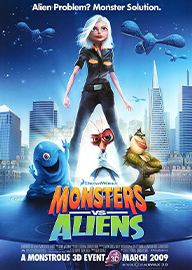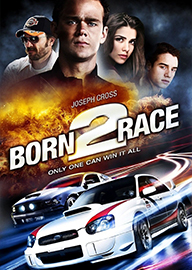Game Change
- 7.4
- Drama
- 2012
- 1h 58m
- 14+
a riveting political drama that delves into the behind-the-scenes events of the 2008 U.S. presidential campaign. Starring Julianne Moore as Sarah Palin, Woody Harrelson as strategist Steve Schmidt, and Ed Harris as Senator John McCain, the film offers an intimate look at the challenges, strategies, and controversies that shaped the election. Directed by Jay Roach and based on the book by John Heilemann and Mark Halperin, this HBO production is a must-watch for political enthusiasts.













Comments
0Reviews
0Summery
1Please sign in to comment.
Please sign in to review.
The 2012 political drama Game Change, directed by Jay Roach and based on the bestselling book by John Heilemann and Mark Halperin, delves into the behind-the-scenes workings of the 2008 United States presidential campaign. The film, featuring powerhouse performances by Julianne Moore, Woody Harrelson, and Ed Harris, offers a gripping exploration of politics, media, and the complexities of modern electoral strategies. It shines a spotlight on the risks and challenges involved in high-stakes political decision-making, revealing the human stories behind the headlines.
At its core, Game Change focuses on the selection and campaign of Sarah Palin (Julianne Moore), who was chosen as the Republican vice-presidential candidate to run alongside Senator John McCain (Ed Harris). With the McCain campaign trailing in the polls, senior strategist Steve Schmidt (Woody Harrelson) seeks a game-changing move to energize the campaign and close the gap with their Democratic rivals. This decision leads to the selection of then-Alaska Governor Sarah Palin, a relative newcomer to the national political stage.
Julianne Moore's portrayal of Sarah Palin is a masterclass in character study. She captures not only Palin's charisma and populist appeal but also her vulnerability and the intense pressure she faced under the unrelenting scrutiny of the national spotlight. The film does not shy away from depicting the challenges Palin faced in adapting to the rigors of a national campaign, from handling interviews to navigating complex policy issues. Moore's performance is both empathetic and critical, providing a nuanced portrait of a polarizing figure.
Woody Harrelson delivers a standout performance as Steve Schmidt, portraying the strategist's initial enthusiasm and growing disillusionment as the campaign unfolds. Schmidt's journey from confident tactician to a man grappling with the consequences of his decisions serves as the film's emotional anchor. Ed Harris, as John McCain, brings dignity and gravitas to his role, highlighting McCain's dedication to public service and his struggle to balance personal principles with the demands of the campaign.
The film provides a fascinating look at the intersection of politics and media in the digital age. It explores how Palin's rise to national prominence was both fueled and hindered by the 24-hour news cycle and the burgeoning influence of social media. The infamous interviews with Katie Couric and Tina Fey's iconic impersonations on Saturday Night Live are woven into the narrative, illustrating how public perception can be shaped by soundbites and satire. Beyond its examination of individual characters, Game Change raises broader questions about the state of American politics. It critiques the prioritization of optics over substance and the tendency to value charisma over competence in the pursuit of electoral success. The film does not offer easy answers but instead invites viewers to reflect on the ethical dilemmas and unintended consequences of modern campaign strategies.
Visually, the film adopts a documentary-style approach, blending dramatized scenes with archival footage to create a sense of authenticity. The script, penned by Danny Strong, is sharp and insightful, balancing political analysis with moments of personal vulnerability. Director Jay Roach expertly navigates the complexities of the story, ensuring that the narrative remains compelling and accessible to viewers regardless of their political affiliations.
Game Change is more than just a political drama; it is a human story about ambition, resilience, and the costs of leadership. It captures the exhilaration and chaos of a presidential campaign while providing a deeply personal look at the individuals at its center. Whether you are a political enthusiast or simply interested in compelling storytelling, the film offers a thought-provoking exploration of power, image, and the intricate dance of democracy.